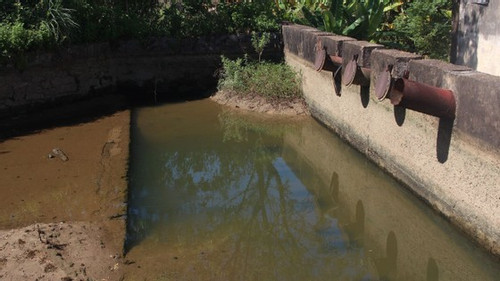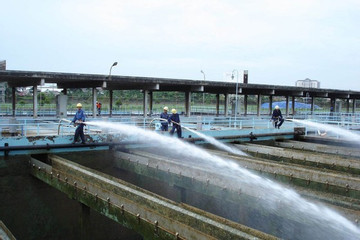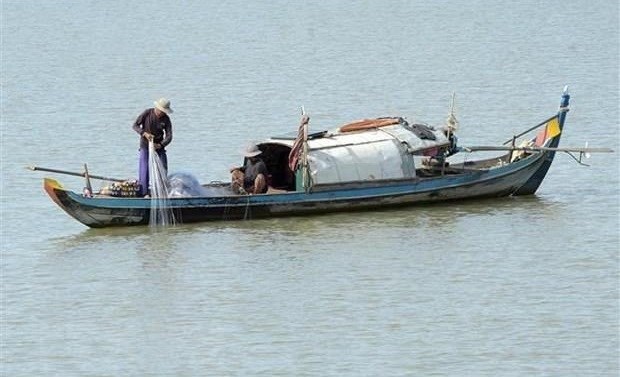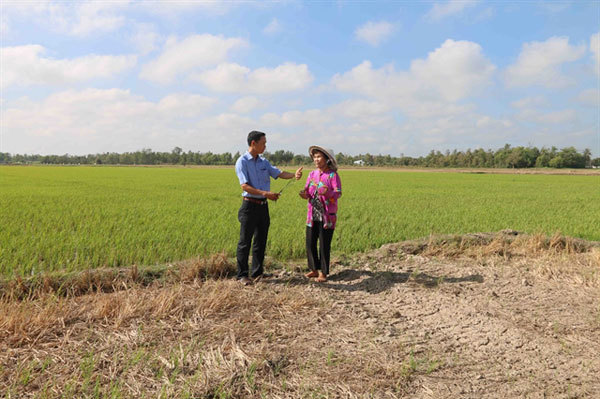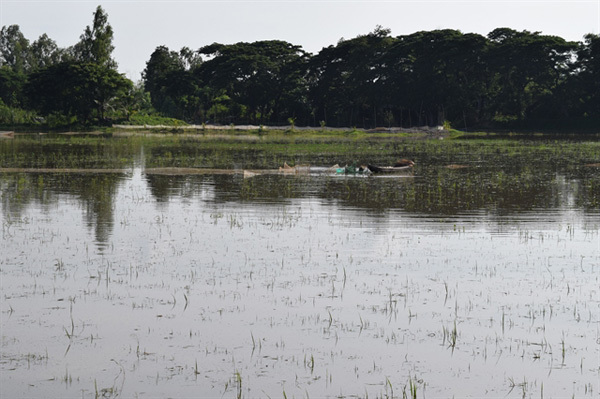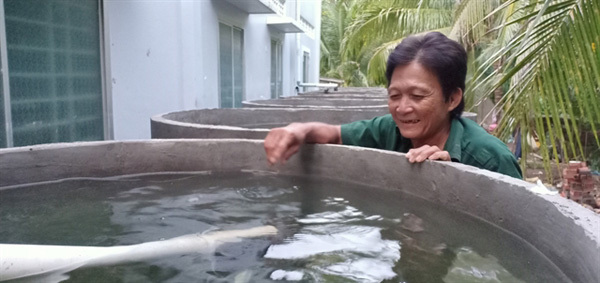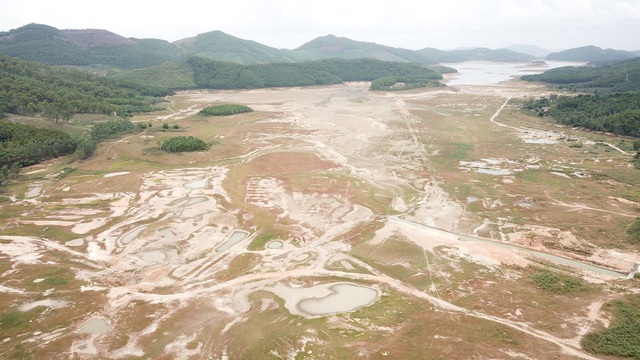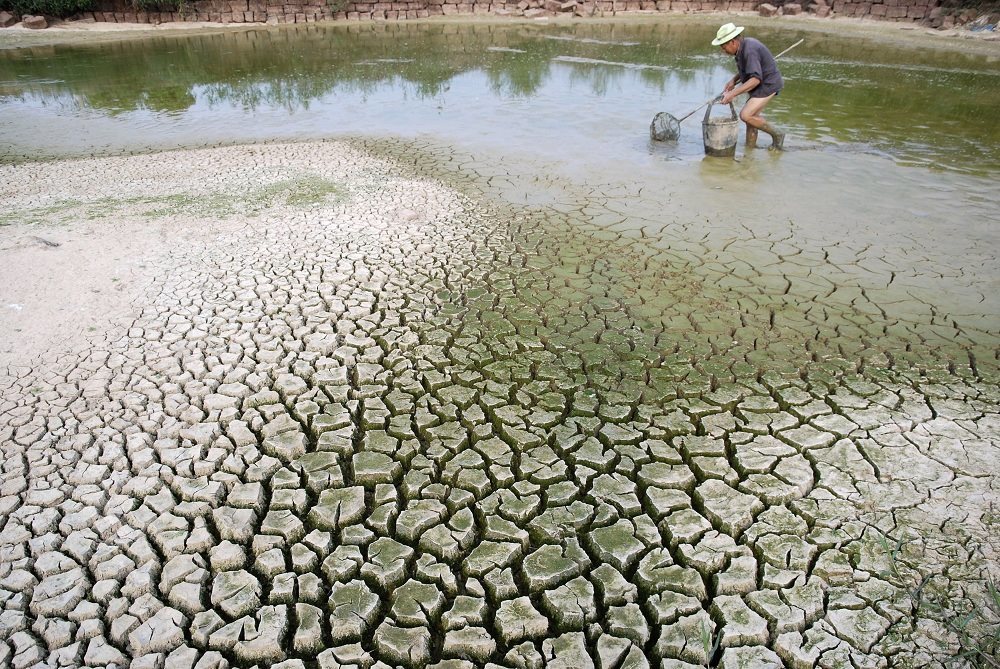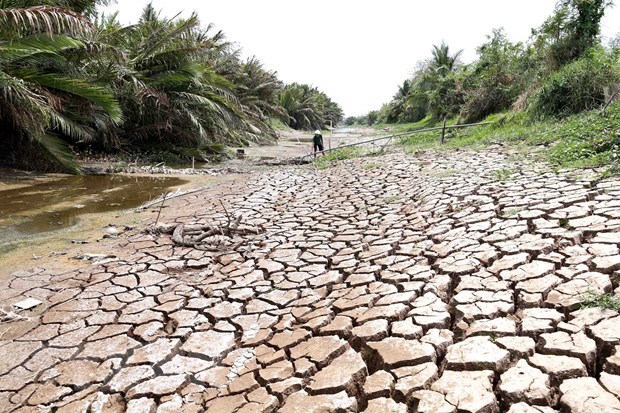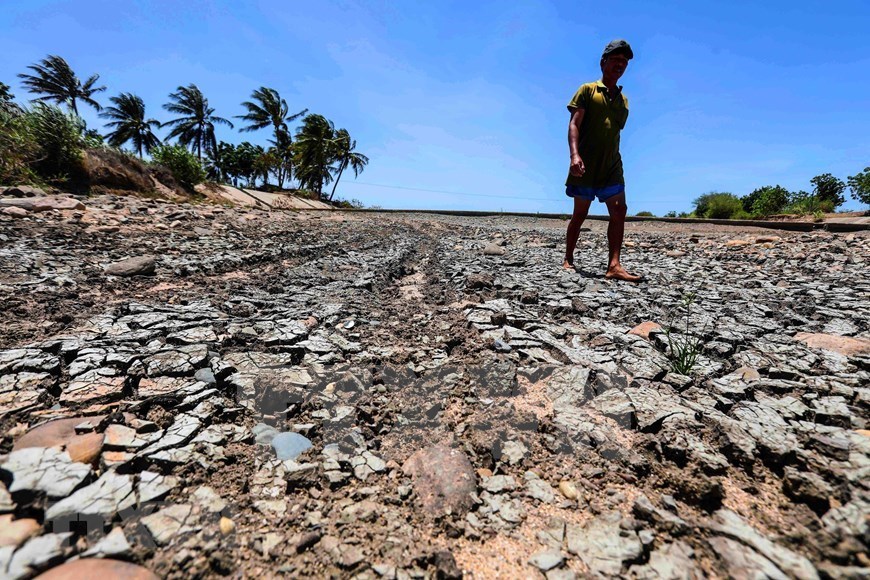- © Copyright of Vietnamnet Global.
- Tel: 024 3772 7988 Fax: (024) 37722734
- Email: [email protected]
drought
Update news drought
PM urges to take measures to cope with drought, water shortage
Prime Minister Pham Minh Chinh urged relevant ministries, agencies and localities to take measures to cope with the risks of drought, water shortage, and saltwater intrusion.
VN actively responds to saltwater intrusion, drought
The Mekong Delta has faced saline intrusion since December last year, while the Central Highlands are entering its dry season. This calls for proper solutions from the local authorities to help citizens cope with the harsh situation.
Mekong River's water flows at record low for third year in a row
The Secretariat of the Mekong River Commission has called on the six countries along the Mekong to urgently solve the problems of low flows in the region.
Tra Vinh loses $43m to saltwater intrusion, drought damage
Saltwater intrusion and drought in the Cuu Long (Mekong) Delta province of Tra Vinh caused a total damage of VND1 trillion (US$43 million) to agricultural production in the 2019-20 dry season.
Mekong Delta to release floodwaters into rice fields to fertilise soil, destroy pests
Farmers in Dong Thap Province’s Hong Ngu District will not grow the autumn-winter rice crop, the year’s third, on more than 9,000ha and will instead release floodwaters into their fields to fertilise the soil and destroy pathogens and pests.
Flood season coming late, drought may hit Mekong Delta again next year
This year’s flood season in the Mekong Delta is likely to arrive late and if there is insufficient rain in the months to come, drought and saltwater intrusion may plague the region again during the next dry season, experts have warned.
Ninh Thuan faces water security problems
Ninh Thuan is the driest province in the country. Severe droughts have been affecting the locality over many years, causing serious damage to agricultural production.
Quang Ninh’s largest freshwater lake dries up
The largest freshwater lake in the northern province of Quang Ninh has seen the lowest water level for nearly 40 years.
Desertification and Drought Day highlights concerns about loss of land
 The theme of the 2020 Desertification and Drought Day of Vietnam is ‘consumption and land’, which emphasises solutions and models that help mitigate drought.
The theme of the 2020 Desertification and Drought Day of Vietnam is ‘consumption and land’, which emphasises solutions and models that help mitigate drought.
Binh Dinh households face water shortage
Thousands of households in central Binh Dinh Province’s My Chanh Commune have been living without tap water for years and must buy clean water for daily use.
Vietnam effectively curbs impacts of drought, saline intrusion in Mekong Delta
 Mekong Delta provinces have experienced the most severe drought and saline intrusion ever in the dry season 2019-2020 but the negative impacts on agriculture production and daily life were minimised significantly thanks to effective measures,
Mekong Delta provinces have experienced the most severe drought and saline intrusion ever in the dry season 2019-2020 but the negative impacts on agriculture production and daily life were minimised significantly thanks to effective measures,
Flood and drought remain key challenges for Mekong region: Report
Extreme low flows and extensive flooding of different communities along the Mekong River last year and an increasing number of droughts that have occurred in many parts of the region in recent years
German experts studying Mekong River water management
 Recent research from experts at the German Foundation for Science and Politics (Stiftung Wissenschaft und Politik - SWP) highlighted shortcomings in managing the Mekong River’s water resources.
Recent research from experts at the German Foundation for Science and Politics (Stiftung Wissenschaft und Politik - SWP) highlighted shortcomings in managing the Mekong River’s water resources.
Mekong Delta needs VND5 trillion investment for freshwater supply projects
 To ensure rural residents have access to fresh water in the 2021-2025 period, localities in the Mekong Delta will require an investment of VND5 trillion.
To ensure rural residents have access to fresh water in the 2021-2025 period, localities in the Mekong Delta will require an investment of VND5 trillion.
Ninh Thuan faces severe drought
 Hundreds of hectares of agricultural land in the south central province of Ninh Thuan have to stop production. Reservoirs are also running out day by day, threatening the lives of people and cattle.
Hundreds of hectares of agricultural land in the south central province of Ninh Thuan have to stop production. Reservoirs are also running out day by day, threatening the lives of people and cattle.
Vietnam's south-central region adjusts farming schedules as drought continues
 The south-central region is estimated to have 51,000 – 70,000ha of farmlands facing a water shortage and a temporary halt to cultivation until there is rain or farmers switch to drought-resistant crops, according to the Department of Irrigation.
The south-central region is estimated to have 51,000 – 70,000ha of farmlands facing a water shortage and a temporary halt to cultivation until there is rain or farmers switch to drought-resistant crops, according to the Department of Irrigation.
PM calls for urgent action to deal with drought, saltwater intrusion
 Prime Minister Nguyen Xuan Phuc has asked authorities in the central and Central Highlands regions to take action to deal with the prolonged heat wave, drought and saltwater intrusion.
Prime Minister Nguyen Xuan Phuc has asked authorities in the central and Central Highlands regions to take action to deal with the prolonged heat wave, drought and saltwater intrusion.
Mekong Delta province faces severe water shortage
 The Mekong Delta province of Long An, which has been hit by severe drought this year, needs more fresh water, but can only supply about 50 percent of demand from its 35 fresh water treatment plants and stations.
The Mekong Delta province of Long An, which has been hit by severe drought this year, needs more fresh water, but can only supply about 50 percent of demand from its 35 fresh water treatment plants and stations.
Central Highlands: Drought drives people to risk life digging for deep wells
 Many people in the central province of Gia Lai are risking their life digging for wells without proper equipment as drought continues.
Many people in the central province of Gia Lai are risking their life digging for wells without proper equipment as drought continues.
PM urges plans to deal with natural disasters
 Prime Minister Nguyen Xuan Phuc has urged all sectors and localities to review and formulate response plans for natural disasters and incidents.
Prime Minister Nguyen Xuan Phuc has urged all sectors and localities to review and formulate response plans for natural disasters and incidents.
